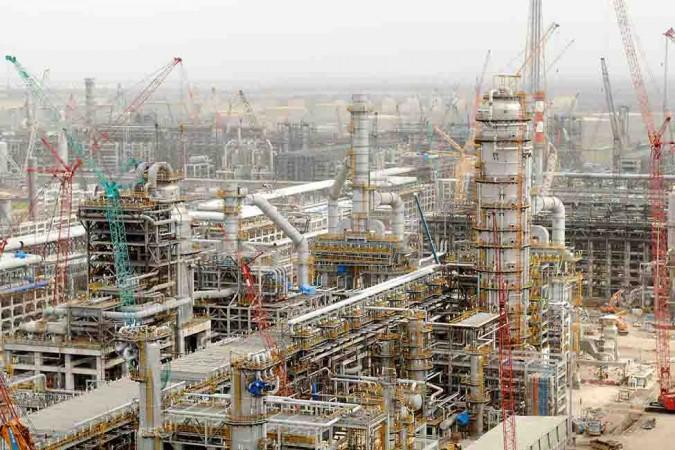
India's largest company by market capitalisation Reliance Industries Limited (RIL) has released better-than-expected numbers for the last financial year (FY19), but the lower stand-alone Ebitda on a sequential basis and adjusted net profits reflected the weak performance of downstream businesses, worrying investors.
The return on assets (RoA) of the Mukesh Ambani-owned company has been dwindling over the last few years after touching a high of 12.7 per cent in FY08. The return ratio, which indicates how profitable a company is relative to its total assets, has been steady at an average of 7.3 per cent during the last 15 years. The value shows how efficient the management is at using its assets to generate earnings.
Kotak Institutional Equities, which reiterates its "sell" rating on the RIL stock observed, "concerns on persisting high capex, non-contributing capital work in progress and rising leverage, on or off the balance sheet, which preclude improvement in return ratios," a report in the Financial Express said.

RIL's refining margin has successively fallen in the last six quarters to $8.2 per barrel in Q4FY19 and, the segment Ebit of refining business slid by 19.1per cent to Rs 19,868 crore in FY19. The petrochemicals business posted a sequential fall of 3.2 per cent in Ebit to Rs 7,975 crore in Q4FY19, the report said. The fall in petrochemicals business was attributed to a decline in production volumes of polymers and intermediates and lower margins for polymers. A relatively better show in retail business in Q4FY19 partly offset the slowing momentum in the telecom business. The stand-alone Ebitda on a sequential basis and the adjusted net profits were lower and reflected the weak performance of the downstream business.
RIL's gross capex rose to a record high of Rs 1.3 lakh crore, including Rs 68,500 crore on Jio. The effective consolidated net debt of the company climbed by nearly Rs 1 lakh crore during FY19 to Rs 3.3 lakh crore, including liabilities pertaining to fibre/tower entities.
The Kotak Institutional Equities has said that even after hiving off Jio's tower and fibre business, the overall capital work in progress remained high at Rs 1.8 lakh crore, including Rs 1.1 lakh crore in the standalone entity. RIL's financing from net working capital fell during FY19. The company's total assets rose two-fold in five years to Rs 10.02 lakh crore through FY19, the report says.
Meanwhile, Reliance Industrial Investments Holdings Ltd (RIIHL), the investment arm of RIL, plans to raise Rs 13,900 crore through a rights issue of non-cumulative optionally convertible preference shares. The funds will go into acquisitions and to meet the group's other funding requirements, two people aware of the development said, requesting anonymity.

















